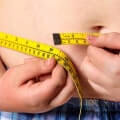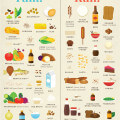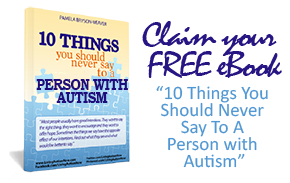Autism has become quite a news sensation nowadays, with significantly higher statistics supporting its rise today than in recent years. A pervasive developmental disorder, Autism highly affects the brain and developmental skills of a child’s first few years of life. From difficulties in verbal to social, emotional, physical and intellectual functions, the impact of autism lies in wide-ranging spectrum with overlapping symptoms making each case unique and distinctive than others. One of the prevalent issues, however, in children with autism is their high selectivity for food (or picky eating).
Autism is all over the news these days, with significantly more children being diagnosed with this condition today than in recent generations. Autism is a pervasive developmental disorder that affects the brain, develops within a child’s first few years of life and affects verbal, social, emotional, physical and intellectual functioning. The causes of autism are not fully understood, and its severity and responsiveness to various treatments vary widely from child to child. Some autism experts believe a healthy diet might help children with autism function more successfully.
Tips to Healthy Eating
Before engaging in any special diet meant for children with ASD, it is imperative that you consult with your child’s physician to ensure that underlying gastric disorders are addressed. Be reminded that in addition to their behavioral and neurological symptoms, children with autism often suffer from digestive and allergy issues. The help of a registered physician or dietitian with experience in treating autism can be of great help to ensure that the food they take will not trigger symptoms, as well as proper nutrition and caloric intake are provided for.
When it comes to food choices, organic and unprocessed foods are ideal choices. Packaged and/or processed foods provide minimal nutrition and inadequate caloric content that will hinder weight development among children. Building a child-with-autism’s diet around these fresh and healthy foods ensure zero nutritional deficiencies and other prevalent digestive risks.
Gluten-Free, Casein-Free diet is considered one of the special diets that can help “treat” autism. This diet, though not scientifically proven, has been going on for quite some time. Parents to children with autism have continually backed the efficiency of this claim that it can help manage, if not minimize the symptoms. Some diets that are also free of allergens as well as yeast can be helpful.
The use of supplements and vitamins is also an important key in ensuring adequate nutritional intake of your child. Supplements like probiotics, omega-3 fatty acids, folic acid, and vitamins A, B6 and C, are just some of the typically recommended ones. Keep in mind that diets like CFGF Diet can make kids lose out on some of the necessary vitamins and minerals prohibited on its food list. To guarantee that necessary nutrition is in your child’s system, the addition of these supplements can be added BUT with the approval of your child’s physician, of course.
All in all, this complex developmental disability called Autism Spectrum Disorders may not be curable but can be managed and controlled with proper intervention and healthy dietary factors. When done with the guidance of an Autism-accredited physician or dietitian, keeping your child’s symptoms under control while maintaining his healthy physique can be attained.





